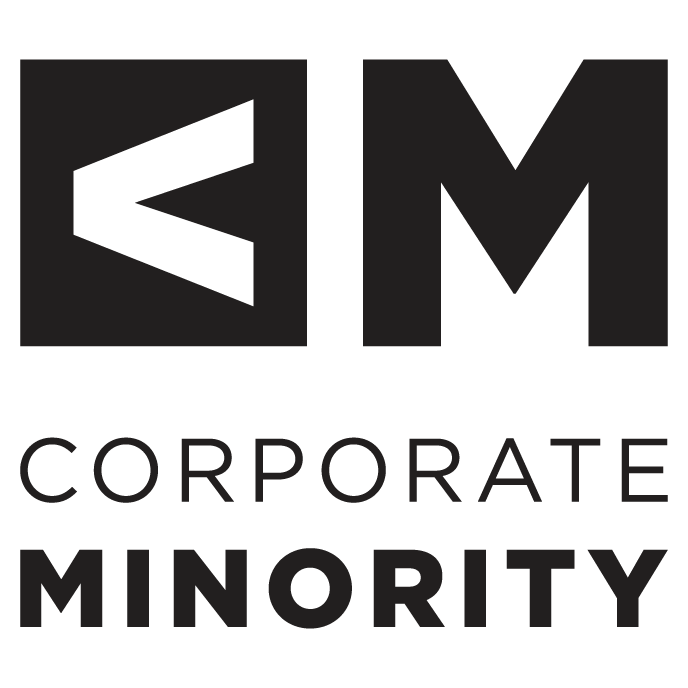Last week, I spoke on a panel about recruiting and retaining women in technology, such as, programming. One of the things I learned was that statistically speaking, women count themselves out of opportunities they are qualified for. As a woman of color, I’ve dealt with this phenomenon throughout my career. I was raised with the mindset that education is the only way to get a seat at the table. Quick question: how many times have you counted yourself out of an opportunity because you felt you weren’t ready? Didn’t have enough degrees? Hadn’t gone to enough networking events? Meanwhile, you are literally Queen (or King) of every activity, study group, and networking community related to your field. Personally, I’ve felt the pressure to over-educate myself, far beyond my peers, in order to be considered at the same level.
Remember that Scandal scene where Olivia Pope’s daddy tried to put her on a plane out of the country? He chastised her mistakes and reminded her “you have to be the best.” While this mindset has certainly contributed to my achieved success, I’ve also found that the “stretch job” will teach me more than the classroom almost every time. Stretch job? What is she talking about? Let me explain. When I worked at a startup in NY, I grew tremendously, mainly because I was forced to do things I’d never done before. Working in crisis management and quality assurance as a recent graduate was a stretch job. I was constantly expected to perform outside of my past experience.
Accordingly, I was given the opportunity to supersede my own expectations of myself. Being the best is about knowing how to learn, and that, my friends, is the most important skill needed to succeed as a programmer.
Okay, so what’s my point? Having more degrees than anyone in your field is not the only path to success, and certainly isn’t in programming. If you think you will achieve total knowledge in programming, you picked the wrong career. Programming is a constantly evolving field and you’ll be learning new techniques and languages forever. If you’re a career changer like me, you may be intimidated by the CS Degrees and programming experience of your peers. But again, an aptitude for learning is the most valuable skill you can have. It takes a lot to unlearn the behaviors we’ve become accustomed to. In my pursuit of a technical career, I’ve come across three common behaviors that hold people back. For any new programmers out there, you’ll definitely need to shed these in order to find success.
1. Being secretive
I grew up around a cultural norm of keeping secrets. Whenever I’ve had a creative idea, I’ve been encouraged to keep it to myself and do it on my own. Ok so here’s the thing. Regardless of your role in the tech industry, you must, MUST learn to collaborate and share willingly. Now I’m sure you’re brilliant, talented and can build the next algorithm to change how we live. But you’d probably be more likely to change the world on a team. You’d be surprised how much your idea will grow and iterate simply because you chose to share. This logic applies even more to programming.
Do you know how awkward it is to watch someone hide his or her code? I mean literally close their laptop so you cannot see? Don’t get me wrong, intellectual property is INCREDIBLY important, however, a huge plus to the programming community is sharing open source code so that other people can learn from you. Pair programming is probably going to be common throughout your career (unless you are the sole programmer at your company). I owe a lot of my growth as a programmer to my classmates at GA. I promise you’ll grow exponentially with the help of your peers.
2. Type Casting Your Talent – “I’m not a creative”
Okay so there is a funny thing I found myself doing in my last career, and that was typecasting myself into a “worker bee” role. I remember thinking Quality Control isn’t creative really, it’s more of a technical operations role. Ok, I mean I’m writing policies but who thinks policy is sexy? I ended up typecasting myself in two ways. For one, I ignored all of the talents I had outside of my role that were creative. Second, I assumed that what I was doing wasn’t creative. Listen writing policy may not sound sexy, but it can be creative. Your original ideas, in whatever capacity they are used, are creative.
I think we learn this behavior in school. You choose a major and all of a sudden you’re “the finance guy” or “the science girl.” But being a career changer is largely about shedding a singular identity and embracing the breadth of your desires and talent. Don’t count yourself out of the game by downplaying the skills you haven’t exercised professionally – you don’t belong in a box. Spend some time white-boarding (I prefer to post it) about the things you are uniquely skilled to do. Employers want to know about it all! More importantly, the world deserves to experience all of your talents.
3. Wallowing in Your Lack Of Programming Experience
So I get it. A lot programming jobs have biases in favor of CS degree graduates (I’ll talk more about this in my blog post next week), however, there are plenty of opportunities for career changers. You have to be careful of counting yourself out of an opportunity or a role because you don’t come from a technical background. The behavior of a good programmer is centered on our problem-solving abilities. For me, coming from a QA role in Operations gave me the crisis management tools to look at a bug or defect and say, “let’s tackle this!” Moreover, I know my skills in a non-technical role actually make me a well-rounded programmer. I have the experience of working with cross-functional teams, assessing needs of all parties involved, producing events, all of which are directly applicable to the world of programming.
Whatever you did in your past career is a HUGE plus for you. You’re coming from a completely different background and that gives you an incredibly valuable diverse perspective. Your way of working through problems may crack the code to the hardest algorithms in a simple, intuitive way. I find that programmers from a non-technical background are the best teachers. Don’t count yourself out just because you didn’t graduate with a four-year degree in CS. Your experience is needed in this field.
For more career advice visit Corporate Minority career insights.





